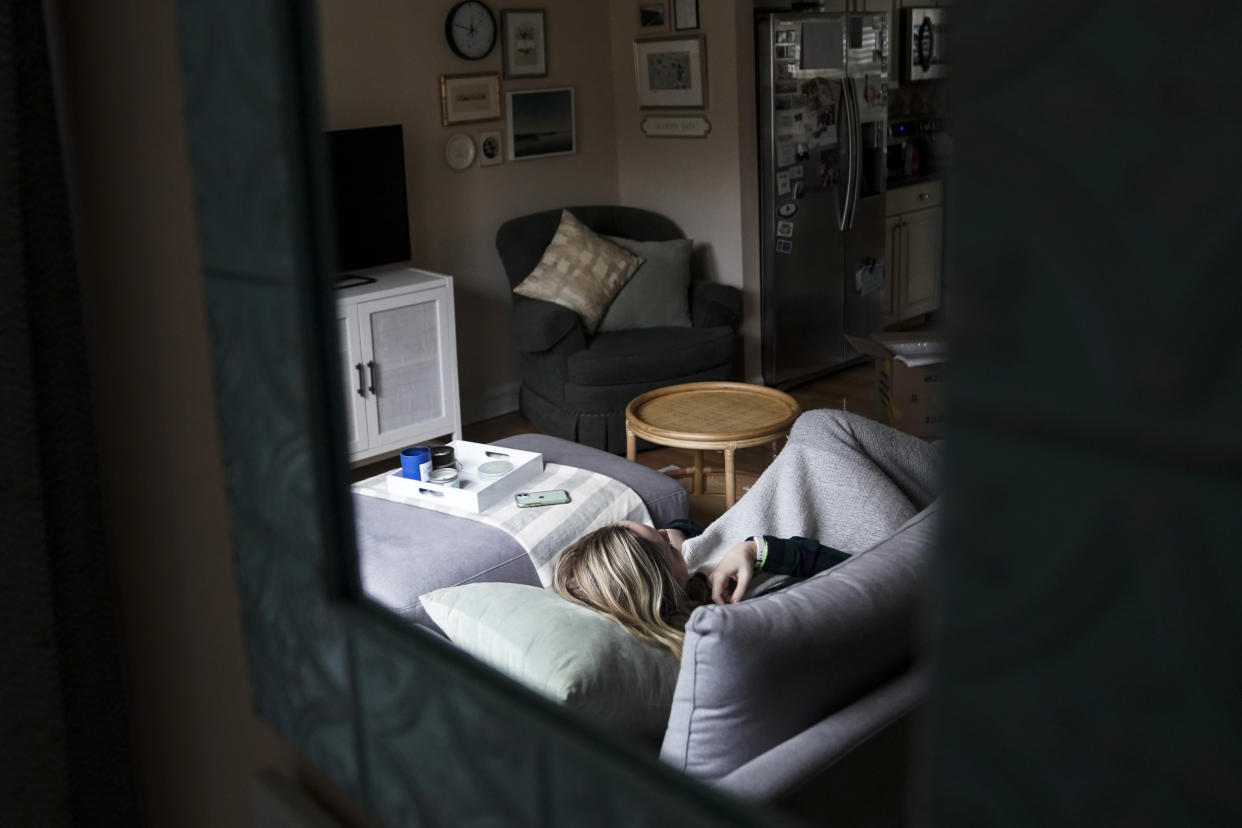Long Covid groups frustrated by federal response
Two weeks before the release of two highly anticipated federal reports on long Covid, patient advocacy groups say they are frustrated with what they call an "underwhelming" federal response thus far.
Recent phone calls between administration officials and long Covid groups meant to offer a preview of the reports left patients without a clear vision of how the federal government is planning to help those whose lives have been derailed by ongoing illness, including trouble concentrating, overwhelming fatigue and debilitating pain.
Full coverage of the Covid-19 pandemic
Kristin Urquiza, a co-founder of the group Marked by Covid, was one of the several dozen long Covid advocates invited to one such call on Friday.
When the call ended, “I went outside and just screamed,” she said.
Urquiza said that officials on the call did not provide details on what will be outlined in the reports by the Department of Health and Human Services, and did not commit to including patient advocacy group suggestions, such as developing better ways to educate the public about long Covid.
“To really hit the mark, the administration needs to be making plans to bring us further into the fold,” Urquiza said. “We’re not just the public. We are the leading representatives of this incredibly large impacted community that is at the center of these plans.”
“We are the boots on the ground. We are the front line,” she said.
President Joe Biden called for the reports in a memorandum in April, with orders to outline a "whole of government" response to support both long Covid patients as well as those affected by Covid in other ways, including the loss of a family member or lasting mental health issues. The second report will focus on plans for long Covid research.
The final reports from HHS are expected Aug. 3.
The Friday call was not open to the media, but participants told NBC News that during a question-and-answer portion, HHS officials estimated the economic impact of long Covid at $50 billion lost in annual salaries. The officials, according to those participating in the call, said they are working to provide disability benefits for those who have had to quit their jobs because of long Covid.
While such moves were seen as positive, advocacy groups said they don't go far enough. Long Covid advocates worry the findings will fall far short in offering what’s really needed: money.
“The Biden announcement in April was extraordinary in its goals,” said Diana Berrent, founder of Survivor Corps, who also joined Friday's call. “But without action, they’re just words on paper, and you can’t get action until you have funding.”

A senior White House official told NBC News that the upcoming reports will not be the only action the administration takes concerning long Covid, and that addressing the effects of Covid remains a priority.
Long Covid research
The second report will outline federally funded research into long Covid. The largest project to date is a project called Researching Covid to Enhance Recovery, or Recover.
Recover is a federally funded, billion-dollar initiative that aims to include 20,000 adults with long Covid.
But enrollment, which began in October 2021, has been sluggish. Nine months into the project, just 5,331 adults with prior Covid infections have been recruited, as well as 629 others never diagnosed with the illness to serve as a control group.
Grassroots groups that support long Covid patients say the Recover recruitment is unacceptably slow.
“They are on a timeline that might serve my grandchildren, but no one before that,” Berrent said. “There is zero sense of urgency.”
Those charged with heading the Recover trials acknowledge the process seems slow, but say it’s required for the rigorous science necessary to find the cause and potential treatments for long Covid.
Download the NBC News app for full coverage of the Covid-19 pandemic
“Everybody wishes we were moving faster,” said Emily Levitan, a professor of epidemiology at the University of Alabama at Birmingham School of Public Health. UAB is one of a few dozen sites nationwide enrolling patients for the study.
For one part of the Recover trial, Levitan and other investigators are trying to recruit people recently diagnosed with Covid and track them over time to see who develops long-term symptoms, and who does not.
Another major goal of the project is to pinpoint a definition for long Covid. There is no standard definition of the illness, which may affect anywhere from 5% to 30% of people who test positive for Covid.
“Knowing who is likely to get long Covid and why they’re getting long Covid will help us both with treatment for those patients and then also thinking about how we might prevent this from other viral illnesses, as well as future waves of Covid,” Levitan said.
But that type of research is less appealing to patients suffering now. They want actionable results, Urquiza said.
“Long Covid patients have very little bandwidth to give their time to science,” she said. “They want to make sure their limited capacity is going in a direction that will help the community.”
Follow NBC HEALTH on Twitter & Facebook.
